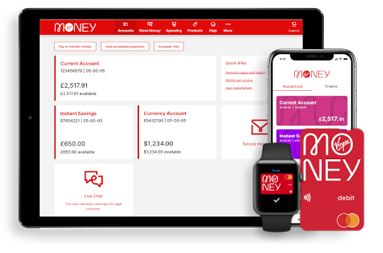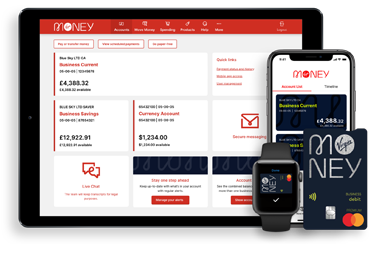-
Login
More Login links
Internet Banking
Business Internet Banking
Started an application?
Other services
Help
-
Register
More Register links
Internet Banking
Business Internet Banking
Other Services
- Our Products More business product links
Bank accounts
- Business current account
- Business choice account
- Switching business accounts
- Compare all business accounts
Savings accounts
Loans and Finance
- All Treasury solutions
Treasury solutions
Help and support
- Online Banking More online banking links
BusinessOnline
- Commercial More commercial business links
Business enquiries
Contact us about a general enquiry.
- Corporate and Structured Finance More corporate business links
Corporate and Structured Finance
SME Cashflow Finance
Unlock your cash flow potential. At Yorkshire Bank we take a flexible approach to business borrowing.
Lending is subject to status and eligibility.
- Our Sector Expertise More sector expertise links
The 7 most important things buyers want when selling your business
< back to all business news articles
05/01/2018
When preparing to sell your business, it’s a great idea to consider things from the buyer’s point of view. In other words, what would you look for if you were the buyer?

Buyers prefer low risk with high reward when they consider investing in small business. Ultimately, buyers will look for good cash flow and solid systems with the potential for further growth.
Buyers need accurate and complete information to make an informed decision on whether your business is suitable for them. You can help this process by understanding who your potential buyer is and what they may want to know about your business.
In general, there are 7 key factors buyers will take into consideration when they’re evaluating a business prospect.
1. Why are you selling?
This is going to be one of the first questions a prospective buyer asks you. You should have an honest response that doesn’t suggest the need for urgency. Owners commonly sell their businesses for any of the following reasons:
- Retirement
- Partnership disputes
- Illness and death
- Becoming overworked
- Boredom
It’s important to be honest, but if the main reason is that the business is not profitable, then this is something to downplay. At the end of the day, they’ll find this out when they go over your financial statements.
2. The timing of the sale
You’ll get the best deal for your business if you plan the sale well ahead of time. This will give you the chance to boost profits and sales, as well as increasing your customer base. All of these things make your business more attractive to potential buyers. If they’re aware that you’ve planned the sale well in advance, this is an indicator to them that you’re not being forced to sell in a hurry because of financial problems.
3. Preparation and information
In order to be prepared for the most likely questions prospective buyers will are, make sure you:
- Have an answer prepared around your competitive advantages and unique selling points.
- Demonstrate how you've successfully handled the ups and downs, especially if yours is a seasonal business.
- Have at your fingertips pertinent information around, leases, customer agreements and intellectual property you own. When do they expire or require renewing?
- Are clear about whether you’d agree to stay with the company on a temporary basis to ensure a smooth transition.
- Know what levels of stock and investment will be required in the foreseeable future.
Buyers will be aware that there’s a risk of customers leaving after you sell. You’ll need to reassure them that your customers are loyal to the business rather than to you.
4. Financial statements
It’s likely that potential buyers will want to view at least three years of financial statements, including income statements and balance sheets. They’ll be buying into your business’s future profitability, so explain any differences between what the finances are showing now, and what they could be showing in the future.

Gather your financial statements and tax returns dating back three to four years and review them with your accountant. In addition, develop a list of equipment that's being sold with the business. Then create a list of contacts related to sales transactions and supplies, and dig up any relevant paperwork such as your current lease. Create copies of these documents to distribute to financially qualified potential buyers.
5. Sales and profits
Go all out to increase sales, follow up leads, call in favours and ask for referrals. Identify what costs you can remove to increase your net profit. Can you buy materials cheaper, switch suppliers of overheads (such as energy and internet costs), or be more efficient with processes so you don’t need as many staff or contractors?
Talk to your staff and ensure they’re making the most of techniques like up-selling and cross-selling. Review their performance so that customer satisfaction is optimal.
Demonstrating how sharp your internal processes are will show buyers that your business is functioning efficiently, and having sales records on hand to prove it is essential.
6. Get an up-to-date business valuation
Your business is worth what someone’s prepared to pay for it, and what you’re willing to sell it for. To get an idea of either, and to find the right balance, you need to figure out what area of the ballpark you’re playing in.
There are several ways you can go about valuing your business. Which one you choose depends on what kind of business you own, who you’re thinking of selling it to and your reasons for selling in the first place. Talk to a business broker about the most common methods of valuation and which suits your business best.
7. Finally, give your business a makeover
In much the same way that you’d spruce up your house before it goes on the market, giving your business a makeover so that it’s presented to its best possible advantage is essential.
This means tidy financial records, optimal levels of staff and inventory, and tightened control over debtors. Fixed assets (like equipment and vehicles) should work well without needing to be replaced in the near future.
Summary
When you’re getting your business ready for sale, don’t forget the physical aspects as well. Update your signage and marketing material, so that you make good first impression when buyers come to view your business. Your premises should be immaculate and orderly, with friendly staff and lively activity. New signage, repainting, and implementing a general clean desk policy will help the overall impression.
Remember that, like any other aspect of business, planning and preparation are key to success. When you’re getting ready to sell, try as much as possible to keep the buyer’s point of view in mind, and keep asking yourself – what would I be looking for if I were thinking of buying this business?
POSTED IN: 2017,Succession
SHARE
Related Articles
You are here: Business Banking > Business News > Articles
- About Yorkshire Bank
- About us
- Virgin Money UK PLC
- Media relations
- Careers

Internet Banking has moved
To log into Internet Banking you now need to use Virgin Money Internet Banking. You'll get the same great service and are able to access all your accounts.
Your log in details will stay the same and you can log in directly from the shiny new Virgin Money website.
Continue to Virgin Money Internet Banking
Go to the Virgin Money website
Be Alert
Never tell anyone a token 3 response code, even someone from the bank. You should only input these codes to our secure Business Internet Banking service when you’re sending and making payments. If anyone calls and asks for a token 3 response code or asks you to authorise a payment on the App for fraud checks, hang up and call us on 0800 085 2914 from another line if possible, remember the Bank will never ask you to disclose your security details.
Continue to Virgin Money Business Internet BankingYou can find impartial information and guidance on money matters on the “MoneyHelper” website.
Yorkshire Bank is covered by the Financial Services Compensation Scheme (FSCS), Find out more.
